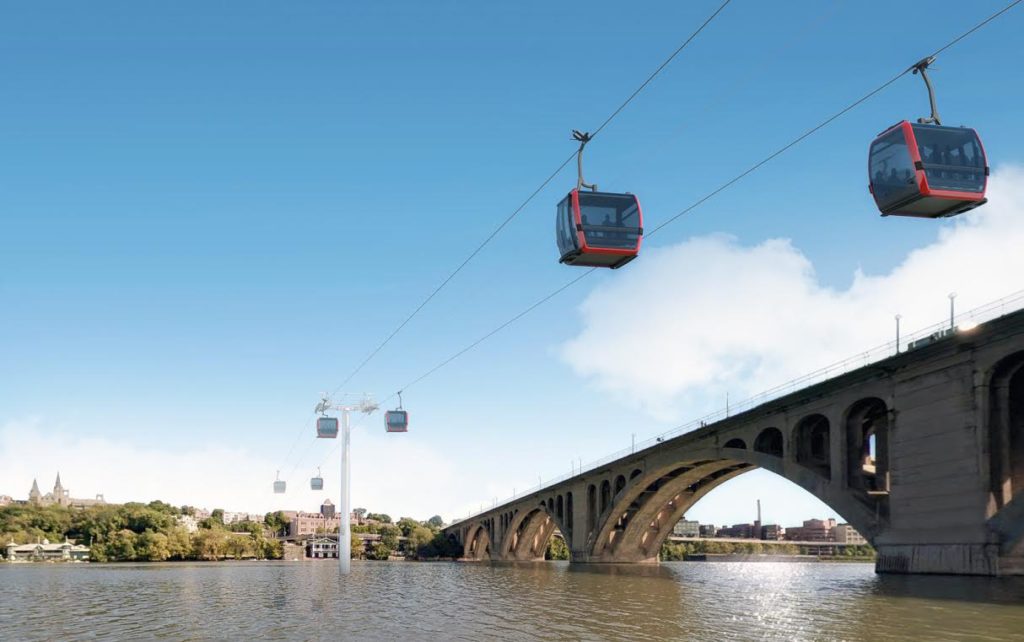Arlington County Leaves Georgetown-Rosslyn Gondola Hanging
By • February 16, 2017 0 1635

After contributing some $25,000 for a comprehensive study of an aerial gondola system over the Potomac River between Rosslyn and Georgetown, the Arlington County Board has, in effect, left the project hanging, omitting it from the county’s capital improvement plan.
In a letter to the Gondola Study executive committee made public Feb. 10, Arlington County Board Chair Jay Fisette wrote: “Arlington already has a large number of transportation projects in the County’s Master Transportation Plan, including several in Rosslyn that will require substantial resources and attention over the next several years.” He continued: “Given our identified and pressing transportation needs, along with some ongoing concerns about the long-term value of the gondola, the Board is not in favor of any further funding of the gondola project.”
“We respect their priorities very much,” said Will Handsfield, transportation director for the Georgetown Business Improvement District, which spearheaded the study along with the Rosslyn BID. “This is still very much a developing project involving some 22 agencies and multiple jurisdictions. With over a million new residents expected in the area the next few decades, the project remains the most feasible and inexpensive way to move large numbers of people across the river.”
A funding plan is just now being developed, according to Handsfield. The total construction is estimated to cost some $85 million. The operational costs could total around $3.25 million annually.
“No one group has been asked to commit any funds at all to the project at this point. We just sent out the comprehensive study and are gathering the feedback,” Handsfield said.
“We do think that the gondolas are a good idea, maybe the best idea yet to deal with a new population of commuters. Compared to other proposals like Metro tunnels under the river and widened highways and bridges, this is the easiest to implement while taking the most people off the impacted roads.”
“It also offers the most pleasant riding experience,” BID CEO Joe Sternlieb pointed out at a recent meeting. Several people who had been skeptical of the project before the presentation, indicated they liked it after learning more about it, Handsfield noted. “All of these projects take time. The Metro took three decades. There is definitely some positive feedback for this project.”
The next action step would be to fund and carry out an environmental impact study, which could cost anywhere from $500,000 to $1 million.

